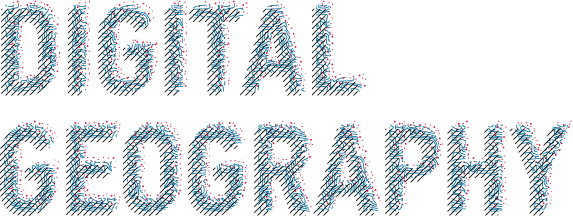s u b \ u r b a n
Project members: Boris Michel and Michael Keizers
s u b \ u r b a n is a scientific journal that creates a place predominantly for a German-speaking interdisciplinary debate in critical urban research. The journal aims to support the exchange among various disciplinary approaches to urban research and to stimulate reflections on the possible role of critical urban research within this field. Discussions with urban social movements are of equal relevance to the journal as reflections on the conditions of knowledge productions in urban contexts, research and teaching. Even though the journal is published in German language, it is explicitly open towards international debates and for translations of texts.
Click here for the website of s u b \ u r b a n: zeitschrift-suburban.de/
s u b \ u r b a n has been funded by the DFG since 2014. The current funding is located at Martin Luther University Halle-Wittenberg.
Governing the Narcotic City

Project members: Boris Michel and Frederieke Westerheide
Governing the Narcotic City explores the discourses, imaginaries, practices and consequences of public drug use from the 1970s until the present, with a focus on Western and Central European cities.
Cultures of drug use are deeply interwoven into public spaces, everyday lives, and the contested governance of European cities. Particularly over the last forty years, we see the governance of narcotic practices play a crucial role in the production and control of public spaces. An examination of these forms of control offers a lens to focus our understanding on historical and present-day forms of urban exclusion, marginalization and integration – particularly in relation to issues of gender, class, race, and disability. Moving beyond stereotypes and stigmatization, we look at how control is exercised and how bodies and identities are disciplined in order to understand how these processes are entangled in the production of narcotic spaces of pleasure, fear, and everyday life.
Our project asks: How have the conflicts around public drug use impacted the social and cultural fabric of European cities in the late 20th and early 21st century? What imaginary geographies of urban narcotic cultures have emerged? How have cities regulated contested sites of drug use? Which actors and social movements have questioned these politics of stigmatization and suggested alternative visions for urban space?
Governing the Narcotic City is working to construct an open-access Archive of public drug cultures. Cutting across different spaces and legal regimes, intentions, and actors, this digital archive is envisioned to unsettle taken-for-granted assumptions about how narcotics, space, cities, activism, and governance are intertwined.
Europe-wide collaboration
For this purpose, we are collaborating with nine local non-profit organizations across Europe. From running needle exchanges to archiving biographies of drug users, these associations have been working first-hand in the field for decades. Their expertise will form the foundation of the Narcotic City Archive.
Also, we achieved to get a number of associated researchers on board who will, with their respective expertises from different fields, provide the project with valuable insights from varying perspectives and international backgrounds.
The city as a regressive utopia. Architecture, community and controll in far-right discourse

Project members: Johann Braun
How does thefar-right position itself in relation to urban spaces? How does it negotiate the city as a place where social contradictions, conflicts, and visibilities overlap and condense? The dissertation project “The City as a regressive Utopia” investigates these questions, which are based at the intersection of political geography and urban studies. It draws on research in the history of ideas on the right’s relationship to the city, sociological-critical and civil society analyses of the political right, and the recent intensive study of right-wing spatial references and territorializations in geography. Against this background, the project reconstructs far-right views of the city as a discursively constituted knowledge formation and its effectiveness for far-right urban policy action.

